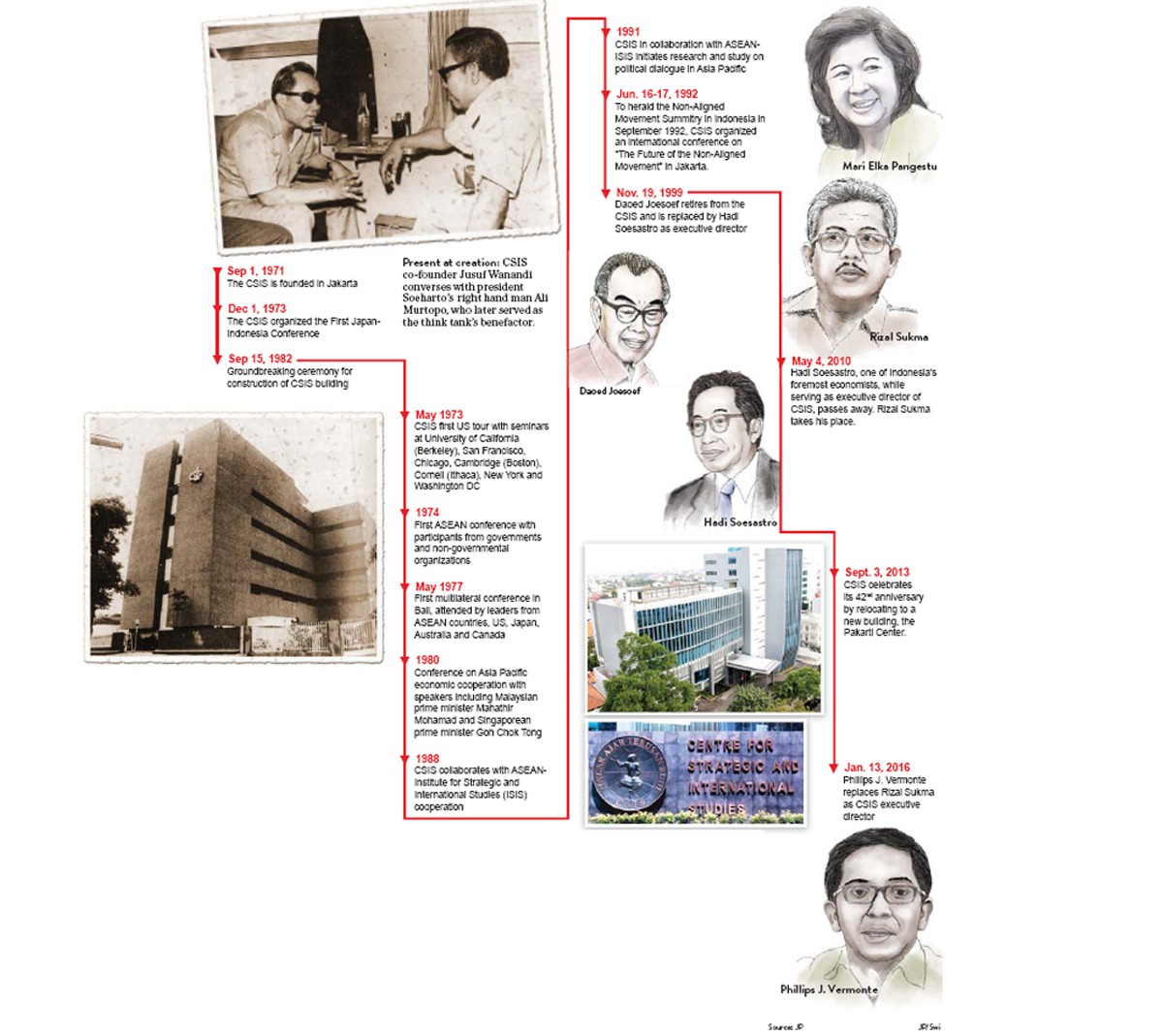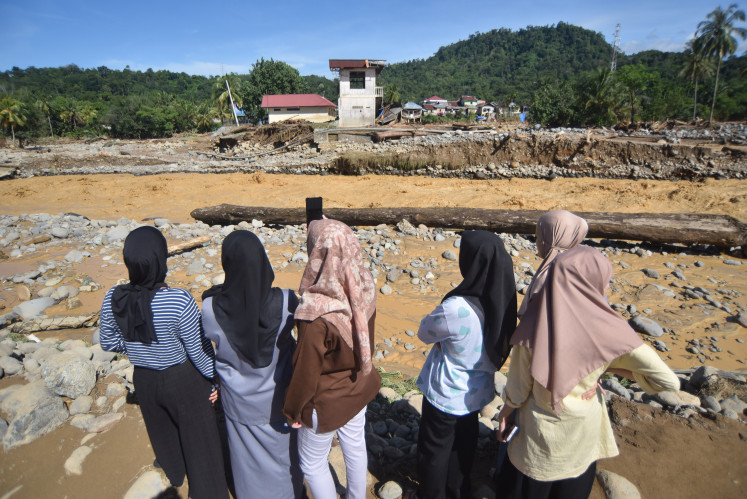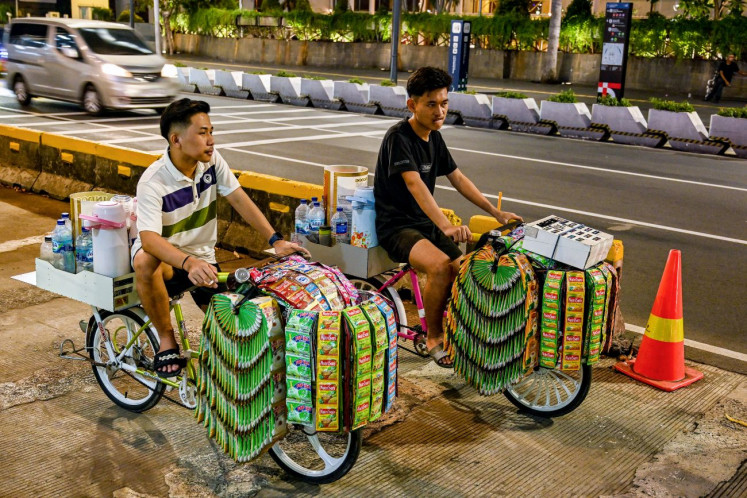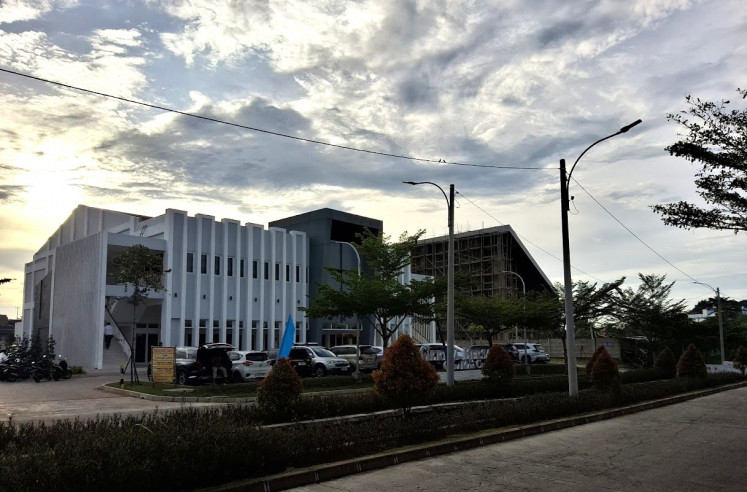Popular Reads
Top Results
Can't find what you're looking for?
View all search resultsPopular Reads
Top Results
Can't find what you're looking for?
View all search resultsCSIS adapts as world faces more challenges
Change text size
Gift Premium Articles
to Anyone
O
n Sept. 1, the Centre for Strategic and International Studies (CSIS) celebrates its 45th anniversary. As one of the oldest surviving think tanks in the country, this outfit has weathered changes and transformations throughout its existence. Key to its survival was the organization’s ability to adapt to new challenges and to maintain its scientific credentials in the midst of political changes that swept the nation. As part of CSIS’ anniversary celebrations The Jakarta Post’s Hans Nicholas Jong talked to some key figures within the institution and came up with this three-piece expose.
It is not an overstatement that as a think tank that has been around in the country for almost five decades, the CSIS has played a significant role in helping chart the country’s course in the fields of politics, international relations and the economy.
Founded in Sept. 1, 1971, the CSIS has had its fair share of challenges in having to navigate through six presidencies; Soeharto, BJ Habibie, Abdurrahman Wahid, Megawati Soekarnoputri, Susilo Bambang Yudhoyono and Joko “Jokowi” Widodo as well as some of the most profound changes in regional and international politics, from the collapse of the Soviet Union that led to the end of the Cold War, the rise of China and the US-led war on terror.
Born out of the youthful idealism of its founders Jusuf Wanandi and Harry Tjan Silalahi, who wanted to help the New Order regime draw up its short and long-term strategic policies, from the very beginning the CSIS has given advice, ideas and support to the government and other entities like the House of Representatives, political parties (mainly the Golkar Party), business and non-governmental organizations. The CSIS also has reached out to the international community to inform them about Indonesia, its policies and development, while also giving feedback to our government and public about development policies and the state of affairs of other important countries in the region and beyond.
But the best thing about the CSIS in its early days was that it had the ears of Soeharto, who received regular input from the think tank on political, economic and defense issues in the form of academic and strategic studies.
However, when the relationship with Soeharto turned sour in the late 1990s, the CSIS was forced to undergo its first major transition, which it managed successfully especially due to its international network.
“The credibility this institution has built up on the international stage meant that there was no shortage of patrons and support for our research work,” Jusuf writes in his memoir Shades of Grey: A Political Memoir of Modern Indonesia 1965-1998, recounting about the CSIS’ lean years.
These days, the CSIS faces challenges greater than just regime change.
Multiple challenges posed by the increasingly interconnected world have forced the CSIS to make a transition even bigger this time.
“Today’s challenges are multidimensional. During the 1970s and 1980s, we could deal with security threats one at a time. But today, we are facing multiple challenges happening at the same time and you have to deal with them directly,” CSIS executive director Phillips J. Vermonte said in a recent interview.
He cited an example of the territorial disputes between China and four ASEAN countries over the South China Sea, which is not only a geopolitical problem, but also a security and economic issue.
“At the same time, there is climate change. It’s all man-made disasters, but Indonesia also has natural disasters that could be threats to security. So the threats are so global. Imagine if there are no coherent policies. This is where think tanks play important roles in Indonesia,” said Philips.
To tackle increasingly complex issues, the CSIS has in the past few years taken a new approach in encouraging inter-disciplinary research.
The think tank is currently applying the interdisciplinary approach in its research on the US-sponsored Trans-Pacific Partnership.
“It’s an international, economic and geopolitical issue. It’s the US’ interest but Indonesia is less interested because there are other more interesting propositions. Therefore, we want to study the partnership by looking at the social and economic aspects,” head of the CSIS’s department of politics and international relations Vidhyandika Perkasa said.
The CSIS has also been trying to look into issues that are considered unpopular today, but are expected to be important in the future.
“We’re not just looking at current problems but also what should be developed next. We have adopted this mind-set in recent years,” the CSIS’s economics department head, Yose Rizal Damuri, said.
He said the digital economy could be one example.
“While we haven’t done any research on the topic, we have started discussions about it. Next year, we’ll start a research project on the digital economy,” Yose said.
Other than the increasingly interconnected world, Indonesia is also facing a transition itself as its population is getting younger and younger, with 60 percent of the population being less than 45 years old.
This shift in demography also posed challenges that the CSIS could look into, Philips said.
“Because when the country transitioned to democracy, this 60 percent were probably still attending elementary school. They didn’t have the experience of living under an authoritarian regime,” he said, adding that the demographic conditions could have profound impacts on the country’s democracy as members of this younger demography were more likely to take democracy for granted.
“They’re not sensitive toward threats to democracy. So we try to develop the idea that there is the need to constantly remind them about democracy, ways on how to maintain democracy by protecting pluralism and human rights,” said Philips.
And given the young demography’s attachment to the internet and social media, there is also the need to talk about internet freedom.
“Internet users have to realize there’s more to it than just listening to music and watching videos on YouTube. They also have to understand that there are elements of decision making that could restrict that, such as the Law on ITE [Electronic, Information and Transaction],” Philips said.
The CSIS thinks that they could start pioneering research on the issue, of trying to find balance between internet freedom and security.
“We haven’t found a middle ground yet. So we are currently conducting research on cyber law,” said Philips.
Jusuf said the new ideas that the younger generation of researchers of the CSIS proposed to undertake in their studies could be the injection of fresh blood into the institution needed.
“The CSIS needs new concepts and ideas. And a new generation has to step up because they’re the ones who can answer these challenges. Philips in his statements and works have shown that his generation really wants this democracy to work. I believe that [too],” he said.










